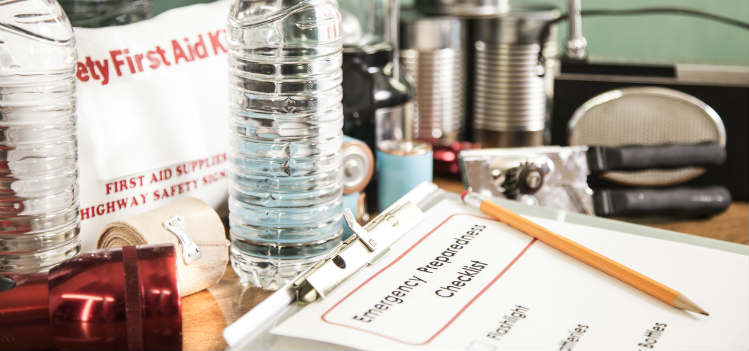Natural Hazard Disclosure Company Offers Earthquake Preparedness Tips

Does Your California Natural Hazard Disclosure Report Show Significant Earthquake Risk?
With tornadoes and hurricanes, there is often some advanced warning, even if it may only be a matter of minutes – this is not the case with earthquakes. Although earthquakes typically occur along fault lines, according to the USGS, neither scientists nor the USGS has successfully predicted an earthquake. Because you never know when an earthquake will occur, it’s best to be prepared. Here are some key steps Californians can take to prepare homes and families for a serious earthquake:
Know what to do and have supplies ready
Having a disaster supply kit, stocked and ready, minimizes the impact of any natural disaster. It’s a good idea to keep emergency supplies in your home and in your car. You can find many lists of what should go into your disaster supply kit, but here’s a starter:
- Bottled water and packaged foods
- Personal hygiene supplies
- First aid kit
- Dust mask, work gloves, protective goggles and tools
- Road maps
- Flashlights with extra batteries
- Emergency cash, copies of personal identification
- List of prescriptions and doctors
- Medications, extra glasses, contact lens solution
- Portable radio with extra batteries
- Cooking utensils
- Blankets, sleeping bags, tent
- Warm clothing
- Pet supplies
Protect important documents
Keep your important documents and valuables in an accessible place. Have a list of phone numbers on paper, just in case you can’t access your phone. You may want to make copies of your insurance policies and put them in your supply kit.
Consider earthquake insurance
Earthquake insurance is not required in California, but it must be offered to you if you have homeowner’s insurance. Know that your homeowner’s policy will not cover earthquake damage. Natural Hazard Disclosure reports can tell you if you’re on an active or potentially active fault as well as how the ground beneath your home may affect your risk.
Prepping your home
Seismic retrofitting can help reinforce your home’s foundation to better protect it against an earthquake. This is not a DIY project. You’ll want to work with a licensed contractor or engineer. Older homes will certainly benefit from bolting the foundation, bracing the cripple walls and strengthening any unreinforced chimneys and walls. Get a California home inspection before the unspeakable happens to know whether your home is in good shape.
Have a communication plan
Even though schoolchildren often practice earthquake drills in school, if one were to occur in the home, would your family know what to do? Ensure your family knows the best places to shelter within the home in the event of an earthquake. Discuss a meeting place for your family where you will convene and assess once the shaking stops. Make sure everyone has a list of important contact numbers.
California Natural Hazard Disclosure – Knowing Your Earthquake Risk is Step 1
Get your HomeGuard natural hazard disclosure report to have a better understanding of your risk of being impacted by a natural disaster like an earthquake. Preparation is the key to ensure that you and your loved ones have the best possible chance of surviving any type of natural disaster that might impact your area. Call (855) 331-1900 or contact us today if you are considering purchasing a home or if you just want to know more about your natural hazard risk in your current home.




